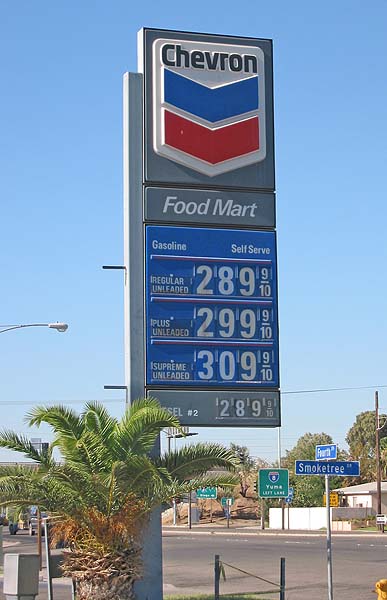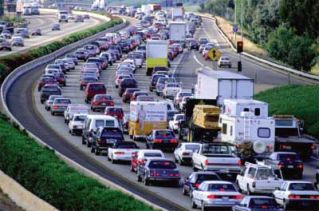One problem with raising fuel efficiency is that unless total miles driven rises radically, receipts from gasoline taxes will fall over time. And that poses a major problem for the steady stream of revenue needed for road construction and repairs.
Taxing vehicle miles traveled has been one proposed solution, although it was ruled out earlier this year by the Obama Administration. Still, raising the gas tax is viewed as politically untenable. Now, the Dutch government has said it will tax mileage driven starting in 2012.
The proposal, approved by the Dutch cabinet in November, is meant to reduce congestion and slash emissions of carbon dioxide (CO2)con, the major greenhouse gas from vehicle tailpipes, by 10 percent. It still has to be voted on by Parliament before it can take effect.

The Driving Activity Reporter, as its called, enables parents to see how their kids are driving

gas Prices

Traffic Jam
GPS tracking for every car
The Dutch transport ministry proposes to bill each vehicle owner monthly, based on readings from GPS devices that drivers would have to purchase and fit to every vehicle.
There is at least one benefit for car owners under the proposal; it would replace annual registration fees and the current 25-percent sales tax on new cars. Both would end entirely when the per-kilometer tax takes effect.
The proposed fee for 2012 is 3 euro cents per kilometer, or 7 U.S. cents per mile. By 2018, that would increase to 6.7 euro cents per km (or 16 U.S. cents per mile). But rates would vary by vehicle type, size, weight, and emissions.
6 out of 10 pay less
Government models show that 6 out of 10 drivers would pay less than they do today, with higher costs falling on those who drive most and at peak hours.
Over time, as more people switch to public transport and cycling (a popular mode of transport in the very flat country), the government projects that the number of vehicles on the road should decrease by 15 percent.
Public transport, classic cars exempt
Buses, taxis, classic cars, motorcycles, and vehicles used by the disabled would all be exempted. The ministry said it would propose "an alternate payment" for non-Dutch vehicles running on Dutch roads.
Dutch motorists, who suffer from chronic traffic congestion, have raised little fuss about the proposal. Some green groups, on the other hand, have denounced it for not going nearly far enough--since driving would remain cheaper than public transport.
Could it work here?
Could such a system work in the United States? Tell us your thoughts in the comments, below.
(And, just to point out that the Dutch aren't entirely grim on the topic of cars, check out our posts on the Amsterdam beer bike and the perennial problem of Smart-dunking, or Smart smijten, in that fabled city of diverse entertainments.)












